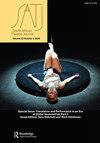Occupational Health and Safety concerns within the live events industry at selected venues in Gaborone, Botswana: a pragmatic and utilitarian approach
IF 0.2
0 THEATER
引用次数: 0
Abstract
This paper investigates potential hazards and health and safety risks in the live events industry in the city of Gaborone, Botswana. The study borrows from Charles Sanders Peirce’s (1995) philosophical pragmatism and John Stuart Mill’s (1879) utilitarianism to investigate potential hazards and health and safety risks in the city of Gaborone’s growing live events industry and how the risks could be mitigated. Using a fieldwork investigation conducted in 2018 and 2019, the study proceeds from the premise that the live events industry is not only precarious but a highly technical and risk-sensitive industry. Therefore, the study investigated the country’s levels of Occupational Health and Safety (OHS) awareness in the live events industry and the levels of preparedness to mitigate risk in that industry. The paper argues that the city (and country) could benefit from putting proper safety guidelines and regulations in place. Much as Botswana could easily borrow safety regulations from similar jurisdictions, it is posited that the neighbouring country of South Africa has structures and legislation in place from which Botswana can borrow. Therefore, Botswana must establish a well-coordinated national structure that will foreground OHS issues and put safety regulations in place in the live events industry. We adopt philosophical pragmatism within a qualitative approach based on interviews, questionnaires, and direct and indirect observation. The field data was used to answer the question; ‘What are the potential health and safety hazards in the city of Gaborone’s live events industry, and how can these risks be minimised?’ The answers to this question were used to propose what can be done to mitigate potential safety concerns in the live events industry.博茨瓦纳哈博罗内选定场地现场活动行业的职业健康和安全问题:一种务实和功利的做法
本文章由计算机程序翻译,如有差异,请以英文原文为准。
求助全文
约1分钟内获得全文
求助全文

 求助内容:
求助内容: 应助结果提醒方式:
应助结果提醒方式:


